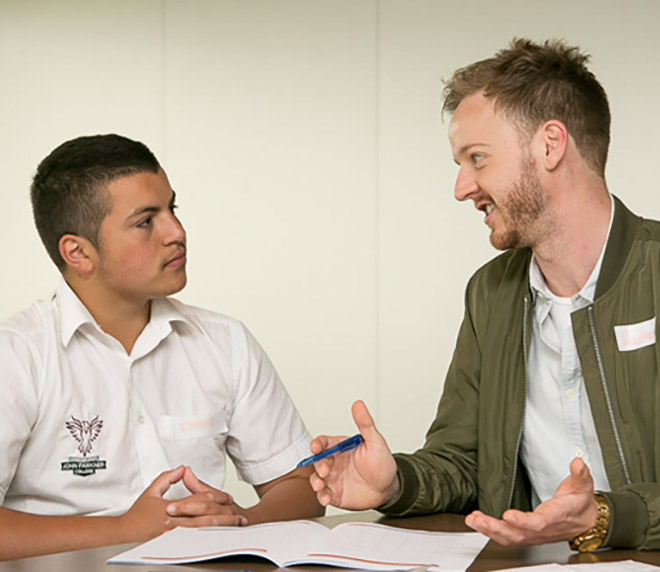Mentoring helps low SES students win at life

The ABCN Foundation has been working with students from low-SES schools since 2005 and is the only organisation of its kind to offer the combination of mentoring and financial support.
It works well: in 2017 87% of the 2014-cohort of scholarship students completed the program. Of these students, 100% are engaged in employment, tertiary education or training (compared with 59% of disadvantaged students at age 24).
93% of its 2015-cohort completed Year 12 (compared with the national average of 74% and 61% for disadvantaged students).
ABCN’s operating model is based on partnering with member companies and schools, enabling the ABCN to draw on a solid base to ensure program content is relevant and future-oriented.
The ABCN’s 40 member companies support the organisation, providing staff who participate as mentors, and the venues to run the programs. The group also has established relationships with over 200 partner schools situated in located in low-SES communities across Australia.
Ten years ago Bankwest partnered with the ABCN to start providing mentors to work with students and Bankwest colleagues have worked with over 300 students.
ABCN’s WA state manager Tiffany Edwards said: “Whether it’s the GOALS, the InterAct or the Innovate program, from start to finish you see the students grow in confidence.
This year Bankwest colleagues have been involved in more programs than ever before with 47 colleagues mentoring students from WA high schools such as Girrawheen, Swan View, Armadale, Balga and Thornlie.
Bankwest Transformation and Technology, Senior Manager Decisioning Systems, Tony Nunn, has been involved since the beginning of the ABCN partnership and for the last few years has facilitated one of the programs.
“It gives them a sense of self-worth. It shows them that there is further education once they leave school and it gives them a few eye openers for what they can achieve.
“At the start you’ll have maybe 10 students who wouldn’t speak at all. By the end of the session they’ll be standing up, giving presentations, doing their research and speaking to a big group of people who are for all intents and purposes strangers,” he added.
“Speaking with the mentors gave me confidence that I am capable of doing anything I set my mind to, I just need to work hard and I will succeed,” one student recently said to us. It’s these kinds of comments which keep me so totally engaged with the program,” Nunn said.